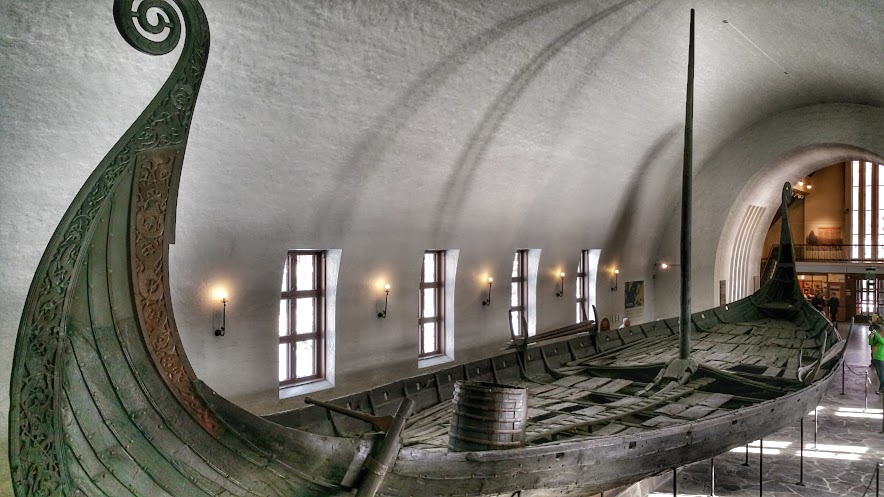Founding Vikings
After prospering quietly for 150 years, Scandinavian-Americans and their ancestral lands are more popular than ever
In this glowing description of bilateral relations between Norway and America, Kare Aas, Norway’s ambassador in Washington, DC, has only a couple of quibbles. “Americans don’t recognise that a Norwegian discovered America long before Columbus,” says Mr Aas. Indeed, almost 500 years before he left for the New World, a Viking ship steered by Leif Eriksson crossed the Atlantic and reached North America, where the Norsemen remained for one winter. “They should also eat more fish,” adds Mr Aas—whose country is the world’s second-largest exporter of seafood.
Relations between America and the Nordic countries have never been better. In May, for the first time, Barack Obama hosted a Nordic summit in Washington with the leaders of Sweden, Denmark, Norway, Finland and Iceland. Their talks about Russia’s expansionism, the fight against Islamic State, climate change and refugees went so well that, as Mr Obama commented, “There was probably too much agreement.” The lovefest was mutual: the Nordics were delighted by their welcome at the White House.
Scandinavia is popular even in the campaign for the presidency. Bernie Sanders, the self-proclaimed democratic socialist who challenged Hillary Clinton for the Democratic nomination, said in the first primary debate last October that America should look to Denmark, Sweden and Norway “and learn from what they have accomplished for their working people.” (Mrs Clinton replied that she loved Denmark, but “We are not Denmark.”)
Bjorn Lyrvall, Sweden’s ambassador, says he is flattered by the attention, but some Scandinavians are slightly irritated by Mr Sanders’s praise. According to Daniel Schatz, a visiting fellow at Columbia University, his country’s economic success is due to its sound institutions and social cohesion, rather than the welfare state so admired by Mr Sanders. During the heyday of Swedish socialism and big government, Sweden’s economic growth actually fell from second in the world in 1970 to the second-lowest in the OECD in 1990. The country recovered only after it decentralised, deregulated its economy and lowered its punishing tax rates.
More than 11m Americans claim to have Scandinavian ancestry. This pales against the 46m who say they have German roots or the 33m who trace their ancestry to Ireland, but the 5m Norwegian-Americans are roughly equivalent to the whole population of Norway. No country, except Ireland, lost as high a percentage of its population to America as Norway. The scope of Swedish immigration is similarly vast: between 1880 and 1920 around 20-25% of the population left for America.
Swedes and Norwegians left their homelands to escape grinding poverty, restrictions on religious freedom and the compulsory military draft. Arable land was scarce and few other jobs were available. The mass exodus, the often harrowing journeys and tough new beginnings made a deep impression on their collective psyche. “Giants in the Earth”, a novel by Ole Edvart Rolvaag, a Norwegian-American, describes Norwegian homesteaders’ hardscrabble life in today’s South Dakota, and was a great success both in America and back in Norway. A tetralogy by Vilhelm Moberg about Swedish emigration to America is among the bestselling novels in Sweden. Former members of Abba, Sweden’s foremost pop troubadours, based “Kristina fran Duvemala”, a symphonic extravaganza, on his novels.
Most Scandinavian immigrants managed to build better lives as farmers, mostly in the upper Midwest, where the landscape and climate resembled home, as fishermen on the north-west coast or with jobs in rapidly industrialising cities. Chicago was an especially popular destination for Swedes. “Chicago was the second-largest Swedish city after Stockholm at the turn of the 20th century,” says Lennart Pehrson, an expert on Swedish emigration to America. The new arrivals were hardworking, disciplined and more literate than other immigrant groups. Many worked in construction; it was said that the Swedes built Chicago. Andrew Lanquist, for instance, built two much-loved landmarks: the Wrigley Building on the Chicago river and Wrigley Field, the principal baseball park.
Some of the newcomers from the North succeeded beyond their wildest dreams. Charles Walgreen, the son of a Swedish immigrant, set up Walgreen’s, America’s largest chain of drugstores. Swedish-born Johan Nordstrom created Nordstrom, an exclusive retail empire. Eric Wickman founded Greyhound, America’s biggest bus line. Alexander Samuelson, another Swedish immigrant, designed the curvy Coca-Cola bottle. On a gastronomic level, much of the cinnamon in American baked goods can be credited to, or blamed on, Scandinavians.
According to a study from the Institute of Economic Affairs, Swedish-Americans are considerably richer than the average American—as are other Scandinavian-Americans. The poverty rate of Americans with Swedish ancestry is only 6.7%, half the national average. Swedish-Americans are better off even than their cousins at home: their average income is 50% higher than theirs, a number used by opponents of the Swedish model as an argument against the shackles of big government.
Their success in America seems solidly grounded in old national virtues. They have more trust in each other and in government; they tend to obey rules (leading to many jokes about “squareheads” and “dumb blondes”). The Protestant work ethic is strong: in Minneapolis in particular, the number of Lutheran churches is striking. Scandinavian-Americans also display a keen civic sense, whether in shovelling snow or helping elderly neighbours, from which everyone benefits.
There have been ups and downs in diplomatic relations over the years; but Russian expansionism is now bringing America’s security policy closer to the Nordics, even though Sweden and Finland are not members of NATO and, at least in theory, are non-aligned. On June 8th Ash Carter, America’s defence secretary, and his Swedish counterpart, Peter Hultqvist, promised to co-operate more closely in a statement of intent signed in Washington.
If Mrs Clinton wins in November, the honeymoon between America and the Nordics is likely to continue. Under Donald Trump, the Republican nominee for the presidency, relations would probably sour: even though Mr Trump used to pretend his ancestors were Swedish, rather than German, because he thought it would make him more popular.

No comments:
Post a Comment